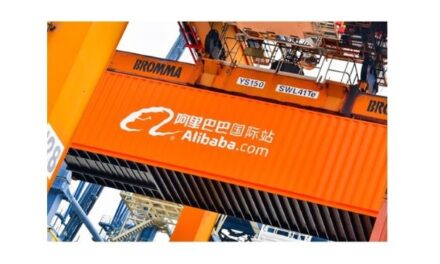China’s e-Commerce Market is Changing as Big Players such as Alibaba Adjust to Thrifty Consumers Amid Leaner Times
- Discount retailer Pinduoduo posts biggest industry growth in third quarter, driven by focus on daily essentials
- Chinese e-commerce players are focusing on price amid leaner economic times and delivery disruption due to lockdowns
China’s online consumer market is moving from a previous structure dominated by Alibaba Group Holding to a more diversified warring state as consumers become more thrifty amid an economic downturn. While Alibaba, which owns the South China Morning Post, remains the largest player in the country’s e-commerce market with its Tmall and Taobao platforms, competition is intensifying as consumers look for the best deals on offer.
Shanghai-based Pinduoduo, which is known for its value-for-money offers, reported a 65 per cent rise in third-quarter revenue to 35.5 billion yuan (US$5 billion). The strong sales growth at the company, which uses a consumer’s social media network to promote deals, contrasted with 3 per cent revenue growth at Alibaba over the same time period – although Alibaba’s sales of 207.2 billion yuan were about six times bigger.
Tam Tsz Wang, a DBS Bank analyst based in Hong Kong, noted that Pinduoduo is benefiting from its focus on lower tier cities and daily supplies, items which remain essential even though life is tougher. Shanghai resident Ruby Ye said that she is now using Pinduoduo instead of Taobao to buy items that cost under 10 yuan, such as slippers and screws, and the quality is fine. “I bought a wristband for my Apple Watch and it was only 6 yuan, the quality is OK,” she told the Post.
Competition in China’s online market has become increasingly brutal as the total pie stops growing – one e-commerce platform’s gain means a loss for another platform and low prices are increasingly the key differentiator. Total retail sales fell by 0.5 per cent in October, a deceleration from 2.5 per cent growth in September.
In a leaked speech by Richard Liu Qiangdong, founder of JD.com, Liu told JD.com senior executives that they must go back to basics to offer consumers the best prices. The speech came after JD.com reported an 11.4 per cent increase in its third quarter revenue to 243.5 billion yuan.
Alibaba’s CEO Danial Zhang Yong also said that the volume of orders from consumers fell due to weak consumer demand as well as disrupted deliveries. For this year’s Singles’ Day shopping festival, Alibaba and JD.com did not release overall sales data.
Source: South China Morning Post


























